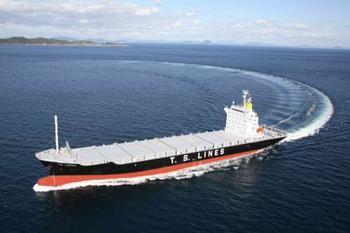 On August 16, Maersk Group released its second-quarter earnings report for 2013. Maersk Group earned US$856 million in second quarter (corresponding to US$965 million in the same period in 2012), and the return on investment capital after tax was 7.4% (8.9% in the same period in 2012), of which Maersk Line unexpectedly earned US$439 million in profits. More than 50% of the group's total profit.
On August 16, Maersk Group released its second-quarter earnings report for 2013. Maersk Group earned US$856 million in second quarter (corresponding to US$965 million in the same period in 2012), and the return on investment capital after tax was 7.4% (8.9% in the same period in 2012), of which Maersk Line unexpectedly earned US$439 million in profits. More than 50% of the group's total profit. With the global shipping industry still in the doldrums, Maersk’s performance has almost doubled year-on-year.
All four businesses are profitable
Since last year, the Maersk Group has gradually formed four core businesses: container transportation, port terminals, oil exploration and offshore drilling platforms (shipping and shipbuilding shipbuilding) business. The second-quarter earnings report shows that all four core businesses have achieved profitability. Mazda Petroleum's profits have been reduced due to the drop in both oil prices and output.
In the second quarter, the Maersk Group’s operating income decreased to US$14.2 billion (compared to US$15.4 billion in the same period of 2012), which was mainly due to the lower average container freight rate and lower oil production. The higher container volume could only partly offset the above influences.
In the second quarter, Maersk Line earned a profit of US$439 million (US$227 million in the same period in 2012), and the return on capital after-tax investment was 8.5% (4.6% in the same period in 2012). The significant improvement in performance can be attributed to lower costs. Maersk Line's volume in the second quarter increased by 2.1%, the average freight rate decreased by 13.1%, and the total cost per 40-foot container decreased by 12.7%. The reduction in costs is due to the increased efficiency of the ship operating network and lower fuel prices. Maersk Shipping total capacity decreased by 0.9% in the second quarter.
In the second quarter, Maersk Oil earned US$249 million (compared with US$468 million in the same period in 2012), and the return on investment capital after tax was 15.4% (26.4% in the same period in 2012). This result was mainly due to the drop in oil price to US$102 per barrel (the same period in 2012 was US$108/barrel), and the reduction in oil production to 226,000 barrels per day (287,000 barrels in the same period in 2012), FPSO (ship type) Shipyard sales) The above-mentioned impact was partially offset by the post-tax income of $313 million from Gryphon. The Gryphon resumed operations in the UK at the end of May, while Al Merk oil production in Algeria continued to rise.
In the second quarter, Maersk Jets earned a profit of US$179 million (it was US$160 million in the same period of 2012), and the return on investment capital after tax was 12.8% (14.3% for the same period in 2012). Terminal volume was flat year-on-year. At the same time that shipments of most ports in Europe and North America are declining, the development of high-growth markets is still a positive trend, offsetting the decline in European and American volumes.
In the second quarter, Maersk’s oil drilling profit was US$150 million (the same period in 2012 was US$98 million), mainly due to the increase in normal operating hours to 96% during this period (86% in the same period in 2012). All drilling rigs are in contract services. period. The rate of return on investment capital after tax was 12.6% (10.2% in 2012).
The Maersk Group expects its 2013 performance to be approximately US$3.3 billion (US$4 billion in the same period in 2012). With the removal of impairment losses and sales of assets, net profit is estimated to be around US$3.5 billion (US$2.9 billion for the same period in 2012).
Pe Flexible Pipe,Hdpe Flexible Irrigation Pipe,Hdpe Pipe Flexibility,Flexible Polyethylene Drain Pipe
Jiangsu Kinson Conduit Industry Co.,LTD , https://www.jskinsontube.com